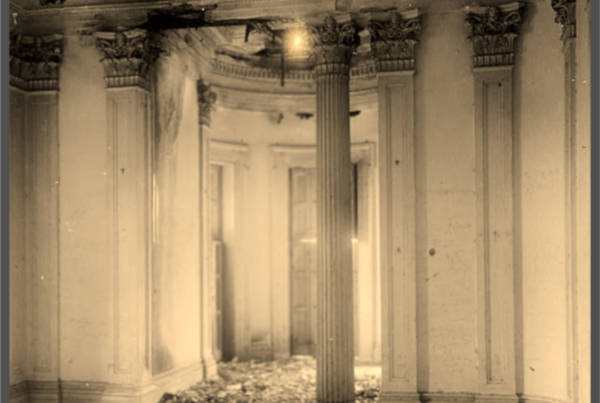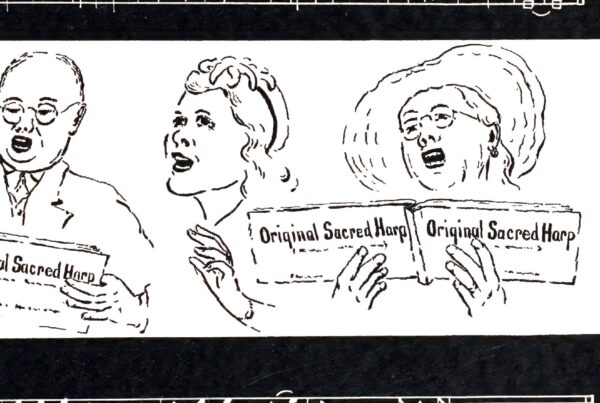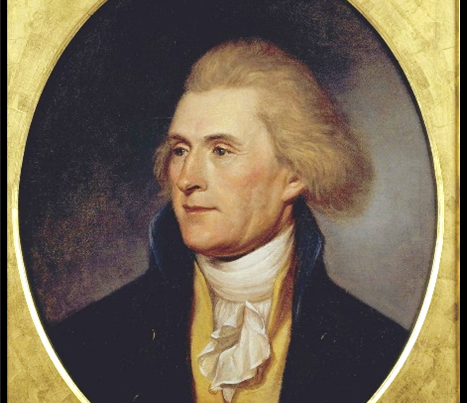In the present judgment of history—or at least those who are counted worthy to opine on that subject—two American presidents occupy positions among the lowest and the highest with regard to their place in the nation’s pantheon of leaders. The interesting thing is that the one followed the other into office which means that the performance of their duties in that office could not have been more dissimilar. Usually, such dramatic differences do not occur in such close historical proximity, but in this case, it in fact, did.
The president occupying the lowest quarter percentile—being placed among the bottom ten in his performance by scholars of history across the board—is Democrat James Buchanan, the 15th President of the United States while the president considered among the top two or three—possibly even the greatest American to hold that office—was the 16th President, Abraham Lincoln. Of course, the ongoing crisis in the nation that contributed to these determinations by scholars and academicians was that of the secession of thirteen Southern States from the union which resulted in a bloody civil war, a war which President Lincoln brought to a successful conclusion soon after he had been elected for a second term. Much of President Buchanan’s low marks are attributed to the fact that he was a “do nothing” chief executive whose lack of forceful leadership resulted in the crisis which confronted Lincoln when he took office. Indeed, there are those who more than suggest that Buchanan’s Democratic affiliations and his Southern background were unquestionably reasons for his failure to act decisively as the union began to unravel. Yet, Buchanan was no secessionist. Indeed, he wrote a paper stating that he did not see secession—as did many especially in the South—as a constitutional remedy for the degenerating sectional turmoil within the nation.
But, many ask, if indeed Buchanan did not favor secession, why didn’t he do something at the time? There were a number of States who had already seceded by the time Lincoln took office. Buchanan was President when those states began to leave the Union, but apparently he did nothing to restrain them. But that is not altogether true. To begin with, he encouraged the passage of the 13th Amendment—called the Corwin Amendment—which placed slavery into the Constitution in perpetuity. Lincoln was very much involved in crafting that amendment and working towards its ratification, though he stated at the time that he had only “heard about” it. In fact, because Buchanan and Lincoln believed that the problem causing secession was slavery, he signed the Corwin Amendment which, as President, he was not obligated (or required) to do. He also did not have a problem with the fact that unlike previous constitutional amendments, Corwin had no “cut off” date for ratification. Indeed, it remains today every bit as prepared for ratification as the day it was introduced. By the time of Lincoln’s inauguration, at least one state had ratified it and others were voting on it but not the states which by that time had withdrawn from the union. Interestingly enough, Lincoln made it quite clear that he had no problem with slavery being placed into the Constitution in perpetuity.
But Buchanan’s role in shaping the debate over secession did not end there. As various Southern states voted to secede, the President asked his Attorney General, Jeremiah S. Black, to provide him with measures he might constitutionally take to stop the process in the remaining Southern States and to force those already removed back into the Union. Few people know of Black’s response to Buchanan, probably because it was not to the liking of Lincoln, his government and today’s historians. On November 20th, 1860, Black sent the following to Buchanan:
Whether Congress has the constitutional right to make war upon one or more States, and require the Executive of the Federal Government to carry it on by means of force to be drawn from the other States, is a question for Congress itself to consider. It must be admitted that no such power is expressly given; nor are there any words in the Constitution which imply it. Among the powers enumerated in Article 1, Section 8, [it] certainly means nothing more than the power to commence and carry on hostilities against the foreign enemies of the nation.
Another clause, in the same section gives Congress the power ‘to provide for calling forth the militia,’ and to use them within the limits of the State. But this power is also restricted by the words which immediately follow that it can be exercised only for one of the following purposes: To execute the laws of the Union;…To suppress insurrections against the State; but this is confined by Article 4, Section 4, to cases in which the State itself shall apply for assistance against her own people. (as in the Whiskey Rebellion—vhp) [And] 3. To repel the invasion of a State by enemies who come from abroad to assail her in her own territory. All these provisions are made to protect the States, not to authorize an attack on one part of the country by another; to preserve the peace, and not to plunge them into civil war. Our forefathers do not seem to have thought that war was calculated “to form a more perfect Union, establish justice, insure domestic tranquility, provide for the common defense, promote the general welfare, and secure the blessings of liberty to ourselves and our posterity.”
There was undoubtedly a strong and universal conviction among the men who framed and ratified the Constitution, that military force would not only be useless, but pernicious, as a means of holding the States together. If it is true that war cannot be declared, nor a system of general hostilities carried on by the Central Government against a State, then it seems to follow that an attempt to do so would be ipso facto an expulsion of such State from the Union. Being treated as an alien and enemy, she would be compelled to act accordingly. And if Congress shall break up the present Union by unconstitutionally putting strife and enmity and armed hostility between different sections of the country, instead of the domestic tranquility which the Constitution was meant to insure, will not all the States be absolved from their Federal obligations?
It is clear from what Buchanan learned from Attorney General Black that there was no way he, as President, could constitutionally prevent secession or nullify it. Now, we must remember, that Buchanan—as every President before and after him—had taken an oath upon assuming the office President of the United States. That oath is found in Article II, Section 1 of the Constitution and states as follows:
…I do solemnly swear that I will faithfully execute the office of President of the United States, and will to the best of my ability, preserve, protect, and defend the Constitution of the United States.
Interestingly enough, in his inaugural address, Lincoln threatens “civil war” upon the people of the South and declares that he is bound by the solemn oath he took “to defend the government” rather than the Constitution. And it is the government upon whose behalf Lincoln initiates a bloody and brutal war, a war that, as Attorney General Black points out, was forbidden by the Constitution.
The question then really is, was James Buchanan a “do nothing” President? From the evidence, the answer is obviously no. He supported and promoted the Corwin Amendment to the Constitution in an effort to prevent the secession of the Cotton States, a secession which he believed to be directly related to their concern about radical abolitionism and the attack on the institution of slavery. But in fact, both Buchanan and Lincoln made it clear that slavery was in no danger from either President. So it would seem that slavery, contrary to both modern and contemporary rhetoric was not the driving force behind secession.
But even more to the point, Buchanan called upon the highest legal officer in the land other than himself to provide him with constitutional remedies in the matter and none were to be found. So Buchanan found himself in a situation in which he would have to accept secession and keep his oath to protect and defend the Constitution, or initiate war against the Cotton States—treason according to Article III, Section 3 of the Constitution—in hopes of keeping the Union together even at the point of a bayonet. Buchanan chose the high road and accepted the calumnies of history for his “failure” to act. On the other hand, Lincoln did act and the result was a terrible war that gutted the Constitution and destroyed the Republic of the Founders.
It is interesting to note that Lincoln took the same oath to protect and defend the Constitution as did Buchanan, but even in his inaugural address he had changed the object of that oath from the Constitution and its original concept of sovereign States and the will of the People to the federal government which he saw not as the agent of the States through the Constitution, but the true power in the nation whose agents were the States and the people. Certainly that was the result that came out of Lincoln’s war. Indeed, nowhere is the fact made more clear that Lincoln never intended to abide by his sacred oath to protect and defend the Constitution than in his letter to Albert G. Hodges of April 4th, 1864 in which he admitted, albeit somewhat circumspectly:
Was it possible to lose the nation, and yet preserve the constitution? By general law life and limb must be protected; yet often a limb must be amputated to save a life; but a life is never wisely given to save a limb.
The “life” to which Lincoln refers is the nation; the limb, the Constitution. However, he failed to note, or, more to the point, refused to recognize that the amputation of that particular “limb” resulted in the death of the very “life” he claimed to be attempting to save. For what remained after Lincoln decimated the Constitution was a mere parody of the Republic which was given into his hands as President. That fact became known as soon as his war began, but was lost in the intervening years between the end of “reconstruction” (another crucial topic required to understand the nature of today’s “federal government”) and the opening years of the 21st century. Northern historian Professor Jay Hoar summed up the situation with precision and accuracy when he said:
The worst fears of those Boys in Gray are now a fact of American life—a Federal government completely out of control.
James Buchanan has been vilified as a “do nothing” President, but, in fact, he actually did all that he was permitted to do under the Constitution, a document he had taken an oath to uphold. On the other hand, Abraham Lincoln, who took the same oath, brought ruin and disaster upon both the Union and the Constitution. It is long past time to acknowledge this fact and to reverse the judgment of history regarding these two men. Buchanan deserves so much more while Lincoln deserves so much less.






